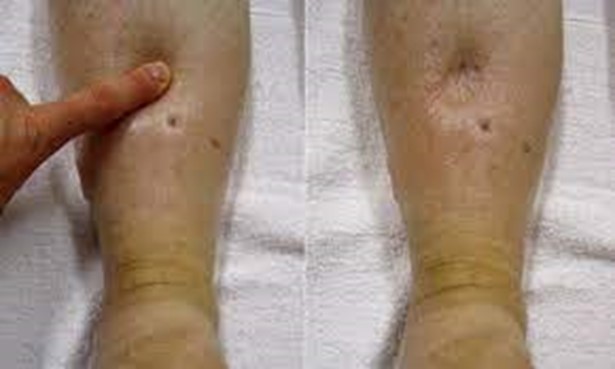A nurse in a provider's office is providing care for a client who has minimal exposure to sunlight. Which of the following interventions should the nurse recommend?
Reduce intake of calcium-rich foods.
Use sunscreen with skin protection factor (SPF) of 8.
Take vitamin D supplements.
Use a tanning bed 2 hr weekly.
The Correct Answer is C
The correct answer is Choice C: Take vitamin D supplements.
Choice A rationale:
Reducing intake of calcium-rich foods would not be a suitable recommendation. Calcium is essential for bone health, and a client with minimal sunlight exposure is at risk of vitamin D deficiency, which affects calcium absorption. Therefore, this choice would worsen the client's situation.
Choice B rationale:
Using sunscreen with an SPF of 8 is unlikely to provide adequate protection against the harmful effects of sunlight. Moreover, the client's issue is vitamin D deficiency due to minimal sunlight exposure, and using sunscreen would further hinder vitamin D synthesis.
Choice C rationale:
Taking vitamin D supplements is the most appropriate intervention. Vitamin D is synthesized in the skin upon exposure to sunlight, and since the client has minimal sunlight exposure, supplements are necessary to prevent vitamin D deficiency. This choice addresses the root cause of the issue.
Choice D rationale:
Using a tanning bed is not recommended for increasing vitamin D levels. Tanning beds emit ultraviolet (UV) radiation, which can increase the risk of skin cancer. Moreover, excessive UV exposure is not a safe or controlled method for addressing vitamin D deficiency.
Nursing Test Bank
Naxlex Comprehensive Predictor Exams
Related Questions
Correct Answer is C
Explanation
The correct answer is Choice C: 3+ pitting edema.
Choice A rationale:
1+ pitting edema refers to mild pitting edema. It is characterized by a slight indentation that disappears rapidly. A measurement of 6 mm edema is beyond the scope of 1+ pitting edema.
Choice B rationale:
2+ pitting edema indicates moderate pitting edema. It is characterized by a deeper indentation that takes a few seconds to rebound. While 6 mm edema might be associated with 2+ pitting edema, it is not the most accurate description.
Choice C rationale:
3+ pitting edema signifies moderately severe pitting edema. It is characterized by a noticeable indentation that remains for a short duration. A measurement of 6 mm edema aligns with 3+ pitting edema, making it the correct choice.

Choice D rationale:
4+ pitting edema represents severe pitting edema. It is characterized by a deep indentation that persists for a significant amount of time. 6 mm edema is not typically associated with 4+ pitting edema.
Correct Answer is C
Explanation
The correct answer is Choice C: Take vitamin D supplements.
Choice A rationale:
Reducing intake of calcium-rich foods would not be a suitable recommendation. Calcium is essential for bone health, and a client with minimal sunlight exposure is at risk of vitamin D deficiency, which affects calcium absorption. Therefore, this choice would worsen the client's situation.
Choice B rationale:
Using sunscreen with an SPF of 8 is unlikely to provide adequate protection against the harmful effects of sunlight. Moreover, the client's issue is vitamin D deficiency due to minimal sunlight exposure, and using sunscreen would further hinder vitamin D synthesis.
Choice C rationale:
Taking vitamin D supplements is the most appropriate intervention. Vitamin D is synthesized in the skin upon exposure to sunlight, and since the client has minimal sunlight exposure, supplements are necessary to prevent vitamin D deficiency. This choice addresses the root cause of the issue.
Choice D rationale:
Using a tanning bed is not recommended for increasing vitamin D levels. Tanning beds emit ultraviolet (UV) radiation, which can increase the risk of skin cancer. Moreover, excessive UV exposure is not a safe or controlled method for addressing vitamin D deficiency.
Whether you are a student looking to ace your exams or a practicing nurse seeking to enhance your expertise , our nursing education contents will empower you with the confidence and competence to make a difference in the lives of patients and become a respected leader in the healthcare field.
Visit Naxlex, invest in your future and unlock endless possibilities with our unparalleled nursing education contents today
Report Wrong Answer on the Current Question
Do you disagree with the answer? If yes, what is your expected answer? Explain.
Kindly be descriptive with the issue you are facing.
